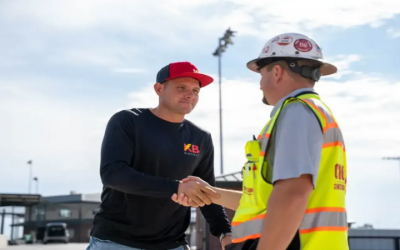Every construction project begins with extensive planning. Part of that planning is layouts and schematics, part of it is budgeting, and part of it is materials selection. Companies must consider the function of their intended construction, including the needed durability of the construction and expected impact of destructive factors on it. For many projects, companies will use concrete. Since not all concrete is created equal, the type is specific to the type of construction and the exact requirements for it.
Types of Concrete
Concrete and cement, though often used interchangeably in conversation, are not the same material. Cement is one of the ingredients used to create concrete, and it is developed based on the construction it will be used for. There are eight different types of cement, though to the layperson they are all quite similar and can often be used similarly. There is cement for general purpose use, cement for environments where a buildup of heat is expected, cement that reaches its greatest strength in a short period of time, cement specifically for dams, and cement that is resistant to chemical destruction. Three more are used to create air-entrained concrete. With so many options for cement and the concrete that it makes, customers need to carefully consult with the company they are ordering products from to be certain they get the correct type and amount of concrete.
Ready Mixed Concrete
One option for customers ordering concrete is ready mixed concrete. This type of concrete is usually mixed in a plant and then delivered to the construction site by truck. Customers must be able to accurately estimate their exact requirement of cubic meters of concrete in order to prevent wasting money and unused concrete. Newer technology also allows customers to order concrete that is mixed on their construction sites, rather than in a plant. The method allows a more flexible production volume that is more easily tailored to the job. Concrete ready mixed in Watford is available both ways: mixed at a plant or on site. When concrete is mixed on site it can be modified not only in volume but also in type, if the job requires more than one. Also, concrete mixed on site is less susceptible to the effects of water and heat during transport, since the ingredients (sand, gravel, water, and cement) are kept separate while in the truck. Customers can determine which factors will have the most impact on their projects and choose their ready mixed concrete accordingly.
Visit Site for more information.



